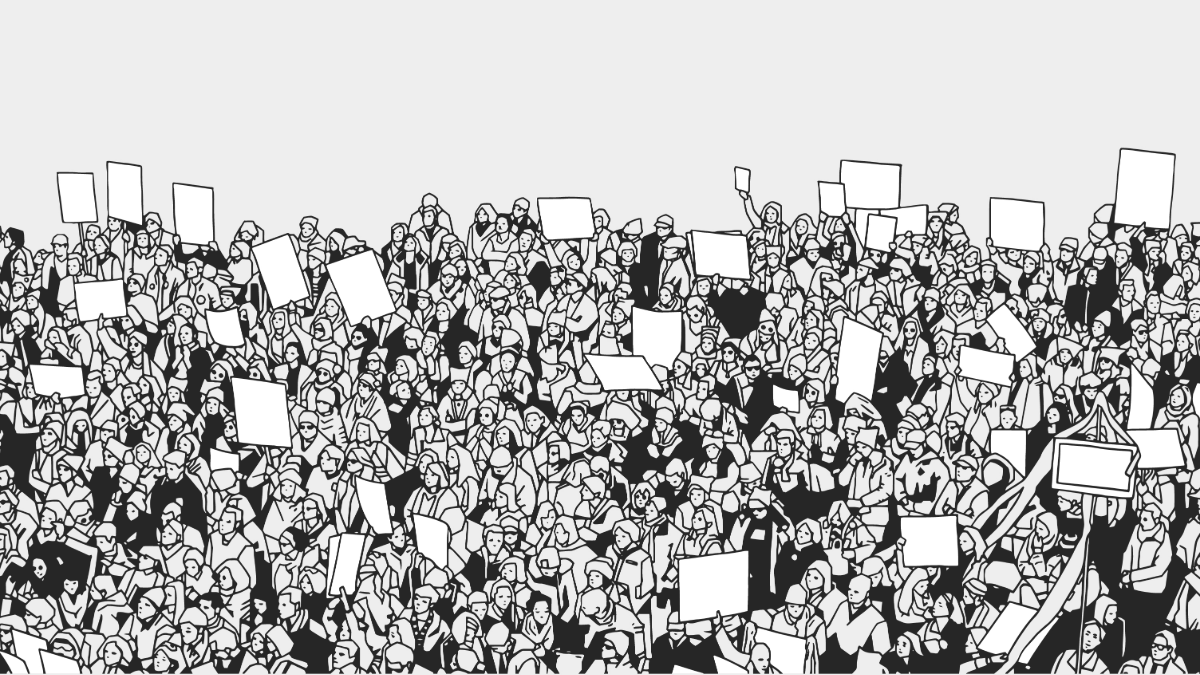The Internet Coup Is Here. And the World Is Still Asleep
Konstantinos Komaitis / Sep 23, 2025In New York this week, the United Nations General Assembly opens its eightieth session. The marble podium, the flags, the set-piece speeches will all feel familiar: presidents invoking democracy, prime ministers vowing to protect human rights, foreign ministers warning of the dangers of authoritarianism. The language is always lofty, the symbolism always heavy. But this year, those rituals feel almost like theater performed against a backdrop of something far more consequential and far more alarming. Because while the delegates are busy congratulating themselves on defending freedom, a quiet coup is taking place — not in parliaments or palaces, but in the invisible infrastructure of the internet.
It is not a metaphor to call it a coup. What leaked documents and recent investigations have revealed is the capture of the network that once embodied openness and connection, now being repurposed, commercialized, and exported as a tool of repression. The InterSecLab’s Internet Coup report and Follow the Money’s exposé on how China is exporting its censorship technologies read like dispatches from the front lines of this takeover. They show how China’s system of digital control, perfected at home through the Great Firewall, is being turned into a global business. Companies like Geedge Networks are packaging the very DNA of censorship — deep packet inspection, real-time surveillance, traffic throttling, VPN blocking — into neat modules with innocuous names like Secure Gateway or Network Zodiac. And governments across Africa, Asia, and beyond are buying in. Even in democracies, this pattern shows up in chillingly familiar forms: consider recent revelations about New York City, where the police are using the city’s “free internet” program in public housing not to liberate, but to surveil, hooking public WiFi and CCTV into central systems without residents’ knowledge or oversight.
If this still sounds abstract, imagine being a student in Myanmar trying to organize a protest, only to find that your messages never arrive. Imagine being a journalist in Ethiopia whose reporting is monitored in real time by security forces. Imagine being an activist in Kazakhstan, discovering that every VPN you try has been systematically disabled. This is not science fiction; it is the daily reality produced by systems sold, installed, and serviced under the banner of “network security.” And these systems are not bespoke creations of paranoid regimes. They are commercial products, sold internationally, complete with training manuals, maintenance contracts, and tech support. Censorship is now a scalable industry.
What should chill us further is that Western technology often lurks inside these systems. The InterSec Lab report states how hardware components, licensed software, international financing — the supply chain of repression is global. So when leaders at UNGA declare their support for a free and open internet, they are often speaking from behind the convenient veil of complicity. Democracies condemn authoritarian control while their companies help provide the machinery. The hypocrisy is breathtaking and it is corrosive.
Perhaps we shouldn’t be surprised. Authoritarian regimes have always sought to muzzle dissent and monopolize narratives. What has changed is the industrialization of that control. It is no longer about one country’s firewall; it is about a template for global digital authoritarianism. China is not just guarding its own garden; it is exporting the very seeds of control, enabling other governments to cultivate their own walled plots of the internet. The result is a slow but unmistakable fracturing: the dream of a borderless, interoperable, radically open network is giving way to a patchwork of monitored, filtered, and sanitized national internets.
The tragedy is that this coup is advancing just as democracies are faltering. Around the world, institutions are under siege, civil society is shrinking, disinformation is rampant, and trust is in free fall. Against this backdrop, the temptation to adopt tools of digital control is immense. Why not block platforms in the name of “security?” Why not monitor activists to preserve “stability?” What starts as authoritarian practice abroad becomes available, even appealing, to embattled democracies at home. Norms shift quietly. What once seemed unthinkable becomes normal. And all the while, the original promise of the internet — as a space of dissent, connection, and imagination — erodes.
The slow violence of censorship is not as dramatic as soldiers on the streets, but it is no less devastating. It does not announce itself with crackdowns and curfews but, instead, it teaches silence. Journalists learn not to ask certain questions because they know their emails are read. Students stop trying to organize because their group chats mysteriously collapse. Citizens censor themselves because VPNs no longer work, because surveillance feels omnipresent, because resistance seems futile. This is how freedom is extinguished: not with a bang, but with a gradual narrowing of what can be said, what can be read, what can be imagined.
That is why these revelations matter so much, and why UNGA 80 is such a critical moment. We now have evidence that censorship is being packaged as an export commodity. We know who is buying, what they are installing, and how it is being used. Pretending ignorance is no longer an option. And yet the danger is that the General Assembly will treat this as just another background issue, buried under climate pledges and trade disputes. If that happens, the world will have missed perhaps the last clear chance to collectively confront the authoritarian capture of the internet before it becomes irreversible.
Because make no mistake: once these infrastructures are entrenched, they are extraordinarily difficult to dismantle. Firewalls do not just vanish and surveillance systems do not simply get turned off. The coup is not metaphorical. It is a structural capture, a rewriting of rules, a seizure of power — except it unfolds in slow motion, almost invisibly, until one day the open internet is gone.
The question, then, is what we will do with this knowledge. Will democratic governments continue to issue lofty statements while their own companies help arm authoritarian regimes with the tools of repression? Will the UN once again pass resolutions that sound noble but carry no enforcement? Will civil society be left to fight alone, underfunded and outmatched? Or will the international community finally recognize that defending the open internet is as urgent as defending territorial sovereignty or climate security.
The answer will determine whether the coup succeeds. Export controls on censorship technology, binding transparency requirements for vendors, penalties for complicity, support for circumvention tools, investment in digital rights organizations — these are not luxuries. They are the bare minimum if we are to preserve even a semblance of the internet’s founding spirit.
At UNGA 80, the world’s leaders have a chance to prove that they understand what is at stake. Not just the technical architecture of a network, but the moral architecture of global freedom. If they fail, if they look away, if they let this coup continue unchallenged, then the open internet will not die all at once. It will vanish click by click, firewall by firewall, until one day we wake up to discover that the space once heralded as humanity’s greatest experiment in openness has become just another instrument of control.
And by then, it will be too late to fight back.
Authors

